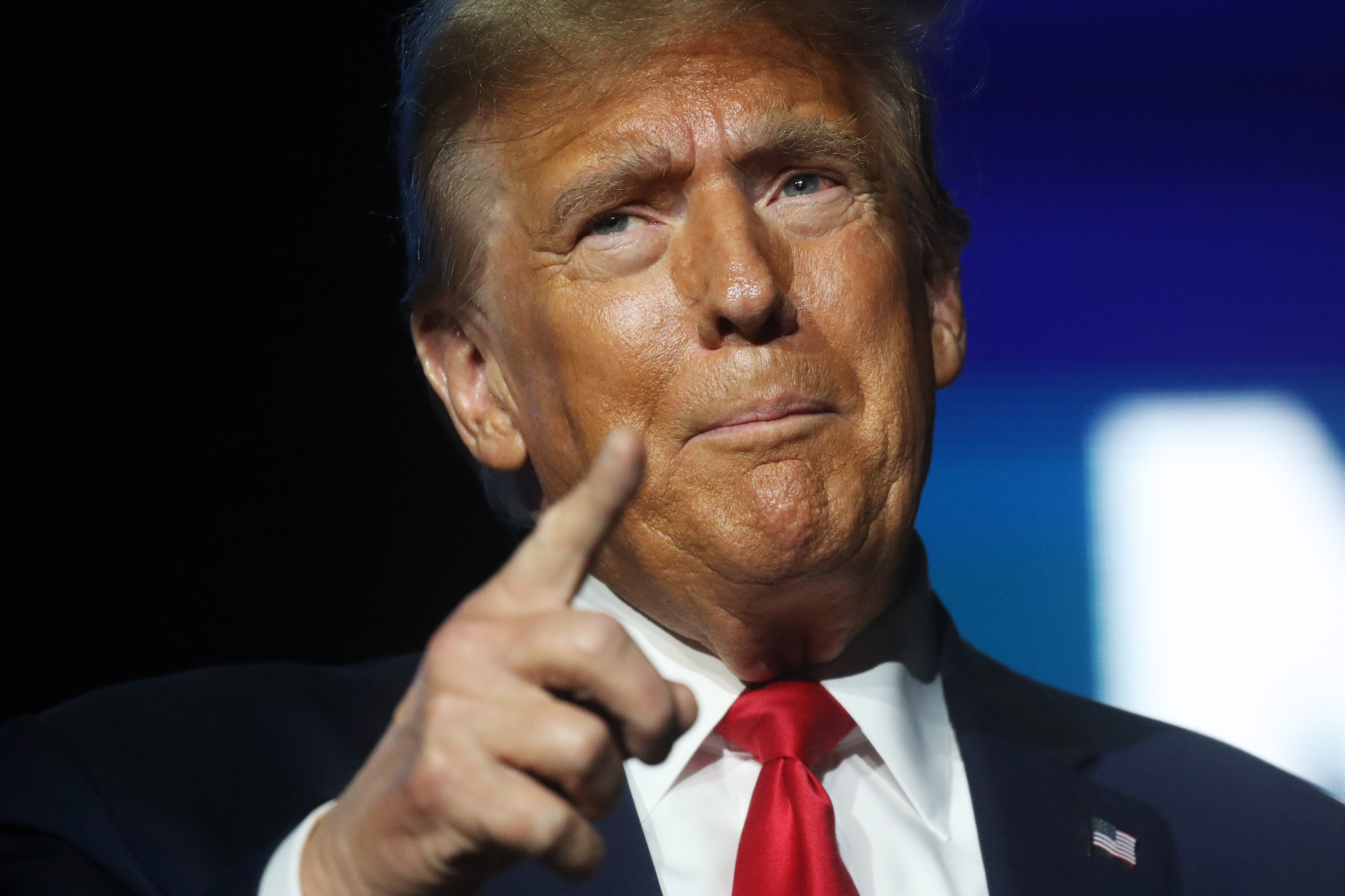A vice president may have to take over if Donald Trump is still facing criminal trials while president, a criminal defense attorney has said.
Manhattan-based Jeffrey K. Levine, who represented former Trump attorney, Michael Cohen, told Newsweek that Trump’s trials may continue after inauguration day in January, 2025.
“If a president can’t pardon himself or herself, the vice president would assume the office of the president where, akin to what we see in Congress, Trump would be the puppet master and remain in power,” Levine said.
Fani Willis, the district attorney for Fulton County, Georgia, has already said that Trump may still be on trial after inauguration day in her case against him for interference in the 2020 presidential election.

Donald Trump arrives at the National Rifle Association presidential forum at the Great American Outdoor Show in Harrisburg, Pennsylvania, on February 09, 2024. Trump’s criminal trials may continue even if he is inaugurated.
Spencer Platt/Getty Images
A stay has been placed on Trump’s other election interference case in Washington, D.C., while he appeals to the Supreme Court and that trial might not begin until much later in the year.
Trump’s Florida trail for allegedly hoarding classified documents has been beset with delays and the judge has already indicated that she will have to create a new pre-trial schedule.
Levine said that Cohen’s unsuccessful lawsuit against Trump established that the former president did not have presidential immunity in civil cases and he believes that Trump does not have presidential immunity in the criminal cases he faces.
Levine represented Cohen when he sued Trump in 2022, accusing him of retaliation after he wrote a tell-all memoir about his time as Trump’s attorney.
On February 12, Trump filed an emergency petition to the U.S Supreme Court, seeking a stay on his election interference case in Washington, D.C., while his lawyers take a presidential immunity case to the Supreme Court.
Levine said that Trump supporters may react if the Supreme Court rules against the former president.
“Regardless of how the U.S. Supreme Court rules on the motion for a stay or certiorari, the base may not give any weight to the ruling if adverse to Trump. What then? Another January 6th type day?” Levine asked.
On February 6, the Washington D.C. Court of Appeals ruled that Trump is not immune from criminal prosecution, allowing special counsel Jack Smith to prosecute him on the four criminal charges related to his alleged efforts to overturn the results of the 2020 presidential election. In August 2023, Trump was indicted by the Department of Justice for his alleged role in the U.S. Capitol riot on January 6, 2021. The former president has pleaded not guilty and has said the case against him is politically motivated.
The unanimous appeal court opinion stated that Trump can face trial on charges that he plotted to overturn the results of the 2020 election, one of the four prosecutions he is fighting as he seeks to reclaim the White House in 2024.
Judge Tanya Chutkan, who is overseeing the election interference trial in Washington, D.C., also rejected the immunity argument, ruling in December that the office of the presidency “does not confer a ‘get-out-of-jail-free’ pass.” She put the case on hold while Trump pursued his immunity claims, and last week she postponed the scheduled March 4 trial date.
Uncommon Knowledge
Newsweek is committed to challenging conventional wisdom and finding connections in the search for common ground.
Newsweek is committed to challenging conventional wisdom and finding connections in the search for common ground.

